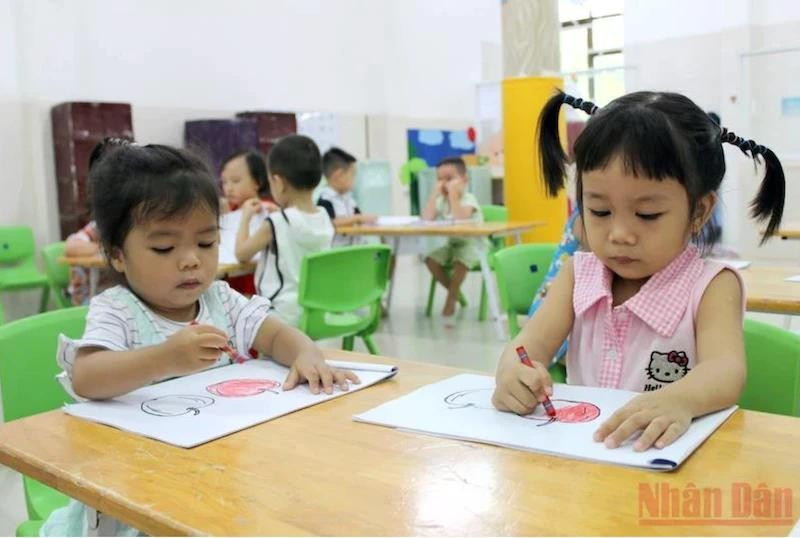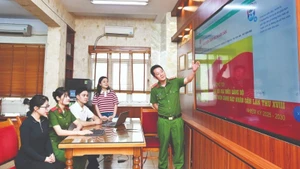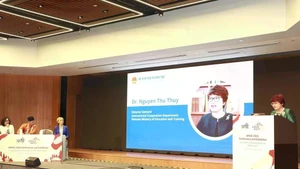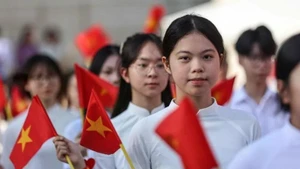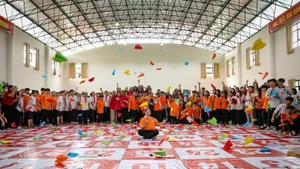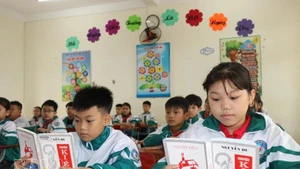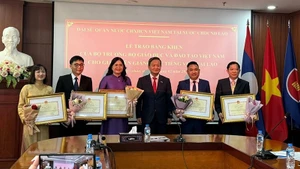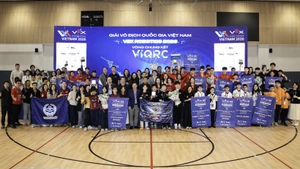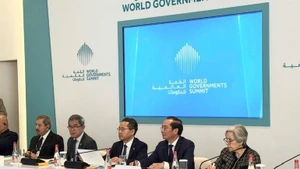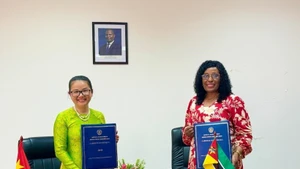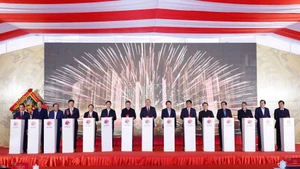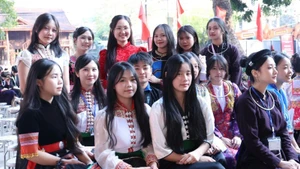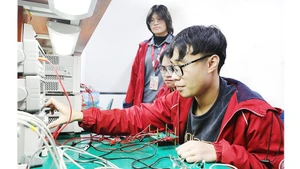Nearly 300,000 preschool-age children still not enrolled
According to a report by the Ministry of Education and Training, the preschool education network has now been expanded to all communes, wards, and villages nationwide, increasingly meeting the demand for sending children to school. Conditions for childcare and education, along with the quality of such care and education, have also been improved.
The Ministry of Education and Training reported that every year, over 5.1 million children attend preschool, of whom 4,556,771 are of preschool age (3 to 5 years old), receiving care and education at 15,256 kindergartens and 17,444 independent preschool institutions. The enrolment rate for children aged 3 to 5 stands at 93.6%.
However, preschool education still faces many difficulties, particularly as nearly 300,000 preschool-age children are not attending class, mainly those in remote, mountainous, and disadvantaged areas or those with special circumstances.
A significant step forward in the strategy for sustainable human resource development
On June 26, the National Assembly adopted the Resolution on universal preschool education for children aged 3 to 5, a milestone in completing the institutional framework for comprehensive educational development, particularly in preschool education, aiming towards building a high-quality human resource base from early childhood.
According to the Ministry of Education and Training, the National Assembly’s adoption of the Resolution on universal preschool education for children aged 3 to 5 is a strong step forward in its strategy for sustainable human resource development.
“The preschool stage is a golden period for the physical, cognitive, emotional, and social skills-based development of children. Investing in preschool education is investing in the future of the nation. Universal education for children aged 3 to 5 lays the foundation for equal access to education, enabling every child to optimise their personal potential,” the Ministry of Education and Training affirmed.
The Resolution on universal preschool education for children aged 3 to 5 is expected by the Ministry to contribute directly to improving population quality. Children who receive early care, nurturing, and scientific education will have a solid foundation in health, intellect, and character, preparing them well for Grade 1 and helping them perform better at subsequent levels. This is a key factor in transitioning from a “large population” to a “high-quality golden population,” meeting the demands for rapid and sustainable development in the dual contexts of digital transformation and deep international integration.
Universal preschool education clearly reflects welfare policies and social equity. Children in remote areas, ethnic minority communities, and industrial zones will be prioritised by the State to ensure their right to education, thereby narrowing the development gap between regions and groups. The Resolution also reflects the strong commitment of the Party and the State to placing children at the centre, ensuring no one is left behind on the path to development.
The adoption of this Resolution is a major policy with long-term vision, contributing to the construction of an equitable, humane, and comprehensively developed educational system—in line with the principle that “education is the top national policy” that the Party and the State have always steadfastly pursued.
The Resolution on universal preschool education for children aged 3 to 5 sets the target that by 2030, 100% of centrally governed provinces and cities will have achieved the standard of universal preschool education for children in this age group.
The Resolution stipulates five groups of mechanisms and policies for implementation, including: (1) Investment in the development of the school and classroom network and ensuring adequate facilities and teaching equipment in accordance with regulations; (2) Ensuring a sufficient number of preschool teachers in line with prescribed staffing norms; (3) Guaranteeing benefits and policies for children aged 3 to 5 and for the staff, teachers, and employees in preschool institutions; (4) Mobilising social resources to develop preschool education in accordance with the law; (5) Giving priority to developing preschool education in areas with particularly difficult socio-economic conditions, ethnic minority and mountainous areas, border regions, islands, coastal zones, densely populated areas, and localities with industrial and export processing zones.
